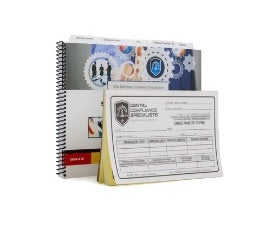DEA Practitioner's Manual: Schedule II Controlled Substances
Federal regulations and guidelines surrounding Schedule II controlled substances in the United States, covering topics like prescription requirements, refills, issuance of multiple prescriptions, facsimile prescriptions, emergency prescribing, and partial filling. These regulations are enforced by the Drug Enforcement Administration (DEA) and are meant to balance the need for access to these medications for legitimate medical use with the requirement to minimize the risk of abuse and diversion.
The guidelines specify:
- Prescriptions must be written and signed by a qualified practitioner or meet DEA requirements for electronic prescriptions.
- Schedule II prescriptions can't be refilled.
- Practitioners can issue multiple prescriptions for up to a 90-day supply if certain conditions are met.
- Facsimile prescriptions are generally not sufficient for dispensing unless one of the three specific exceptions applies (e.g., hospice care, long-term care facilities, etc.).
- In emergency situations, oral prescriptions can be made, but specific conditions must be met, and a written prescription must be provided to the pharmacist within seven days.
- Partial filling is allowed under specific conditions, including at the request of the patient or the prescribing practitioner and when the pharmacy cannot fulfill the entire prescription quantity at once. Special provisions apply for terminally ill or Long-Term Care Facility (LTCF) patients.
These regulations are designed to comply with the Controlled Substances Act (CSA) and exist alongside state laws, which may impose further restrictions.
Is there a specific aspect of these regulations you would like to know more about?
CLICK HERE to read the DEA Practitioners Manual - Part 8: Recordkeeping Requirements
To continue further, click down below for the Article links:
DEA Practitioner’s Manual - Part 10: Schedule III-V Controlled Substances
DEA Practitioners Manual - Part 11: Security
DEA Practitioner's Manual - Part 12: Summary of Prescriptions for Controlled Substances


